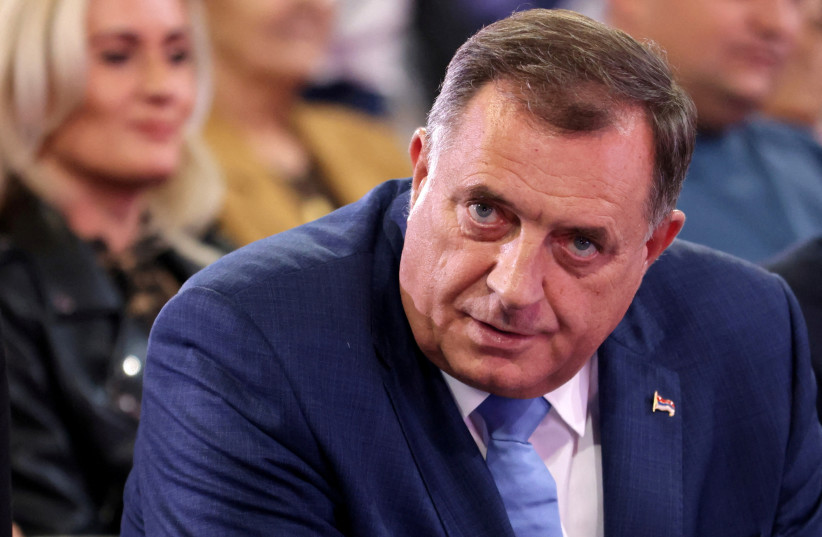Bosnian Serb separatist leader Milorad Dodik renewed his secession threat on Monday, a week after the general election in the ethnically-divided country showed his party remained dominant among the Serbs.
Pro-Russian Dodik triggered the gravest political crisis in postwar Bosnia last December when he tried to pull the Serb Republic out of key state institutions, such as the judiciary, tax system and joint armed forces.
Faced with US and British sanctions and increased international presence in Bosnia caused by fears that Ukrainian war may spill into the Western Balkans, Dodik held back, saying at the time he was delaying, not abandoning the plan.
At a news conference in Belgrade, the capital of Serbia which is key ally of the Bosnian Serbs, Dodik renewed his criticism of Bosnia's present setup, saying it was a non-viable state created by foreigners.

Legacy of the Dayton Accords
Under the Dayton peace agreement that ended its 1992-1995 war, Bosnia was split into two autonomous regions - the Serb Republic and the Federation shared by Croats and Bosniaks - linked by a weak national government.
"We have created Republika Srpska as an independent state, ... , and we have never accepted Bosnia as a joint state," said Dodik, who held the jobs of the region's president and prime minister since 1998, as well as the seat of the Serb member on the country's tripartite inter-ethnic presidency.
"Bosnia needs to be redefined and returned to (the original) constitution. If that is not possible, and it's not possible, it must dissolve," Dodik said.
Dodik, who likes to stress his close ties with Russian President Vladimir Putin and Hungarian Prime Minister Viktor Orban, proclaimed the victory of his SNSD party at all levels of government, including his race for the Serb Republic president.
He said he wanted to address the Serbian media because some have "tried to question his victory."
A bloc of opposition parties has accused him of rigging the presidential vote and asked for a recount. They held protests in the region's de facto capital Banja Luka, attended by thousands of supporters.
Bosnia's election commission said it would look into all recount requests after the final election results due in early November.
Dodik also said that his legal team will try to challenge the position of international peace envoy Christian Schmidt, saying he has "usurped" the job without the United Nations Security Council's mandate.
